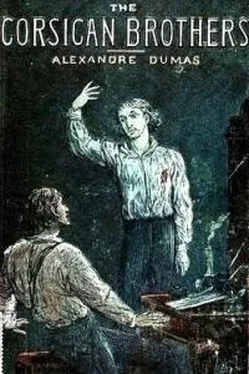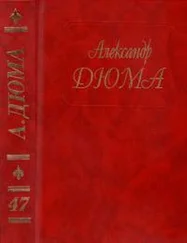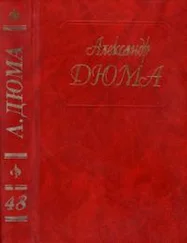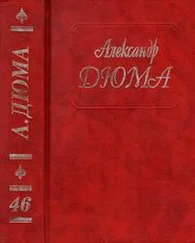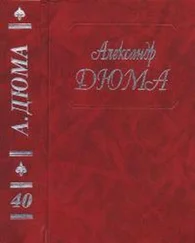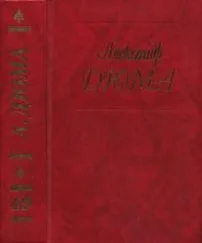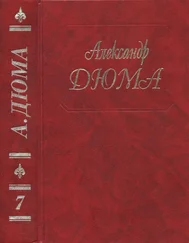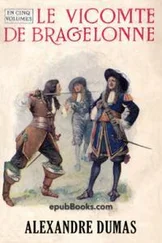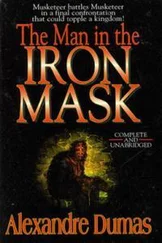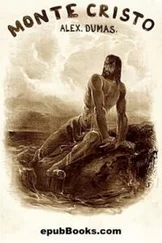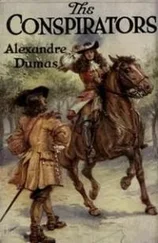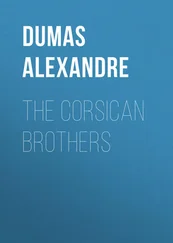As he ceased speaking, I noticed a shadow of a man accompanied by a dog projected in the doorway.
The shadows were those of the bandit Orlandi and his friend Diamond.
At that moment the village clock of Sullacaro was heard striking nine with measured strokes.
Evidently the Orlandi was of Louis XV.'s opinion, that punctuality is the politeness of kings!
It would have been impossible to have been more exact than was that king of the mountain, with whom Lucien had appointed a meeting at nine o'clock.
We both rose from our reclining posture when we saw the bandit approaching.
"YOU are not alone, Monsieur Lucien," said the bandit.
"Do not let that disturb you, Orlandi. This gentleman is a friend of mine, who has heard me speak of you, and wished to pay you a visit. I could not think of refusing him that pleasure."
"Monsieur is welcome to the country," said the bandit, bowing as he advanced towards us.
I returned his salute with the most punctilious politeness.
"You must have been waiting here some time," continued Orlandi.
"Yes, about twenty minutes."
"Quite so. I heard Diamond howling at Mucchio, and he has been with me quite a quarter of an hour since then; he is a good and faithful dog, is he not, Monsieur Lucien?"
"Yes, indeed he is, Orlandi," replied Lucien, as he patted the animal.
"But," said I, "since you knew that Monsieur Lucien was here, why did you not come sooner?"
"Because our appointment was for nine o'clock," said the bandit, "and it is just as unpunctual to be a quarter of an hour too soon as to arrive a quarter of an hour too late."
"That is meant for a hit at me, Orlandi," said Lucien, laughing.
"No, sir; you no doubt have your reasons; besides you have a companion, and it is likely on his account you may have started earlier, for I know your punctual habits, Monsieur Lucien, and I know also that you have been good enough to put yourself to inconvenience on my account frequently."
"Oh, do not say anything about that, Orlandi; this will probably be the last time."
"Have we not some few words to exchange upon that subject, Monsieur Lucien," said the bandit.
"Yes, if you will have the goodness to follow me."
"I am at your orders."
Lucien turned towards me, and said:
"Will you excuse me a moment?"
"Of course;" I replied.
The men then went away together, and ascending the breach through which Orlandi had appeared halted at the top of it, their figures standing out in strong relief in the moonlight.
Then I was able to take more particular note of this Orlandi. He was a tall man, who had fashioned his beard in exactly the same manner as young de Franchi, and was clothed like him; but his dress showed traces of more frequent contact with the bushes through which he was obliged to fly, and of the earth upon which he was obliged to lie, than did those of Lucien.
I could not hear what the men were talking about, and had I heard it I could not have understood it, as they spoke in the Corsican dialect.
But I was enabled to perceive by their gestures that the bandit was refuting with some heat a series of arguments which the young man was setting forth with an impartiality that did him honour.
At length the gestures of the Orlandi became less frequent and more energetic. His voice became subdued, and he at last bowed his head and held out his hand to the young man.
I concluded the conference was now over, and the men descended together towards me.
"My dear, sir," said Lucien, "Orlandi wishes to shake you by the hand, and to thank you."
"And for what?" I said.
"For being so good as to be one of his sponsors. I have answered for you!"
"If you have answered for me I will readily accept, without even asking what is in question."
I extended my hand to the bandit, who did me the honour to touch it with the tips of his fingers.
"You will now be able to tell my brother that all has been arranged according to his wishes," said Lucien, "and that you have signed the contract."
"Is there, then, a marriage about to take place?"
"No, not yet; but perhaps there may be shortly."
A disdainful smile passed over the bandit's face as he replied,
"We have made peace, Monsieur Lucien, because you wished it; but marriage is not included in the compact."
"No," replied Lucien, "it is only written in the future amongst the probabilities; but let us talk of something else. Did you not hear anything while I was talking with Orlandi?" he said, turning to me.
"Of what you were saying, do you mean?"
"No, but what you might have thought was a pheasant close by?"
"Well, I fancied I did hear a bird crow, but I thought I must have been mistaken!"
"No, you were not mistaken, there is a cock perched in the great chestnut tree you saw about a hundred paces from here. I heard him just now as I was passing."
"Well, then," said Lucien, "we must eat him tomorrow."
"He would have already been laid low," said Orlandi, "if I had not thought that in the village they would believe I was shooting at something besides a pheasant."
"I have provided against that," said Lucien. "By–the–by," he added, turning to me and throwing on his shoulder the gun he had already unslung, "the shot by courtesy belongs to you."
"One moment," I said. "I am not so sure of my aim as you, and I will be quite content to do my part in eating the bird. So do you fire."
"I suppose you are not so used to shooting at night as we are," replied Lucien, "and you would probably fire too low. But if you have nothing particular to do to–morrow you can come and take your revenge."
WE left the ruins on the side opposite to that on which we had entered, Lucien going first.
As soon as we had got into the brushwood a pheasant once more loudly announced his presence.
He was about eighty paces from us, roosting in the branches of the chestnut tree, the approach to which was prevented on all sides by the undergrowth.
"I do not quite see how you are going to get him," I said to Lucien; "it does not appear a very easy shot."
"No," he replied; "but if I could just see him, I would fire from here."
"You do not mean to say that your gun will kill a pheasant at eighty yards?"
"Not with shot," he replied; "it will with a bullet."
"Ah! that is a different thing altogether. I did not know you were loaded with ball. You were right to undertake the shot."
"Would you like to see the pheasant?" asked Orlandi.
"Yes," said Lucien, "I confess that I should."
"Wait a moment, then;" and Orlandi began to imitate the clucking of the hen pheasant.
Then, without our being able to see the bird, we perceived a movement in the leaves of the chestnut–tree. The pheasant was evidently mounting branch by branch as he replied to the call of the hen imitated by Orlandi.
At length he arrived at the end of a branch, and was quite visible in the moonlight.
Orlandi ceased, and the pheasant remained motionless.
At the same moment Lucien levelled his gun, and, with a quick aim, fired.
The pheasant fell like a stone.
"Fetch it!" said Lucien to Diamond.
The dog rushed into the brushwood, and soon returned with the bird, pierced by the bullet, in his mouth.
"That is a good shot," I said. "I congratulate you upon it, particularly with a fowling–piece."
"Oh," said Lucien, "I do not deserve your praise, for one barrel is rifled, and carries a ball like a carbine."
"Never mind, such a shot with a carbine deserves honourable mention."
"Bah!" said Orlandi; "why, with a carbine, Monsieur Lucien could hit a five–franc piece at three hundred paces."
"And can you shoot with a pistol as well as with a gun?"
Читать дальше
